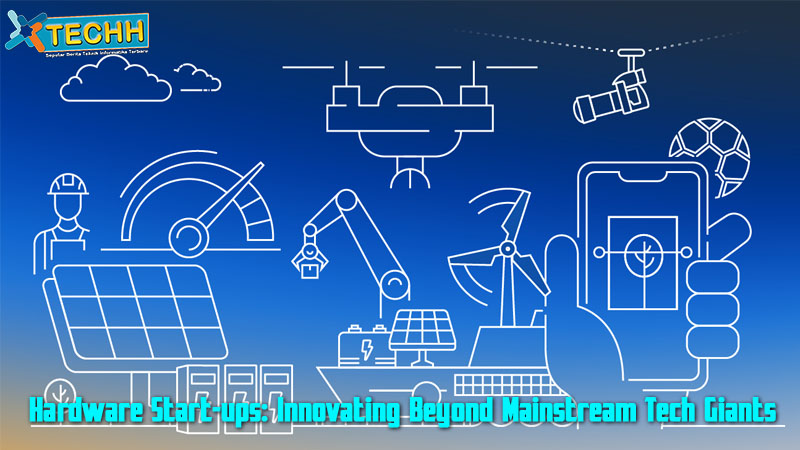Hardware Start-ups: Innovating Beyond Mainstream Tech Giants The tech world is dominated by a few major players: Apple, Microsoft, Google, and others have established their dominance over the years. Their products, ranging from smartphones to laptops and home devices, are omnipresent. However, in the shadows of these tech giants, a new wave of hardware start-ups is emerging. These smaller companies are taking risks, breaking boundaries, and introducing products that challenge the status quo. This article delves into how these start-ups are innovating beyond what the mainstream tech giants offer.
1. Bringing Fresh Perspectives
Start-ups often come with a fresh set of eyes, free from corporate constraints that can sometimes stifle innovation. Without a legacy of older products to maintain compatibility with, or a predetermined brand image to uphold, they can explore out-of-the-box solutions to existing problems. This results in products that are not just new but also revolutionary in their approach.
2. Filling Niches Ignored by the Big Players
Mainstream tech giants, owing to their massive scale, often target broad markets, leaving specific niches unattended. Hardware start-ups, with their agility, can focus on these niche areas, developing specialized products tailored for particular groups. For instance, while Apple might focus on a general-purpose smartwatch, a start-up could develop a specialized one just for divers or mountain climbers.
3. User-Centric Design and Approach
Many hardware start-ups originate from personal experiences, where founders felt a gap in the market that affected them directly. This personal touch often translates into a user-centric approach to product development. By engaging closely with their user communities, these start-ups can iterate quickly based on real feedback, ensuring products that truly resonate with their target audience.
4. Flexible and Rapid Prototyping
Unlike established tech giants that might have lengthy product development cycles, start-ups tend to use rapid prototyping tools and methodologies. With the help of modern fabrication labs and 3D printing, they can quickly turn concepts into tangible prototypes. This not only accelerates the product development cycle but also allows for quick adjustments based on early user testing.
5. Collaborative Ecosystems
Hardware start-ups often function within collaborative ecosystems like co-working spaces, incubators, and accelerators. These environments foster innovation as start-ups can easily collaborate, share ideas, and benefit from each other’s expertise. In contrast, larger companies might operate in silos, with teams working independently.
6. Embracing Open Source
Many hardware start-ups are embracing the open-source movement. By making their designs and software open to the public, they tap into a global pool of talent. The community can contribute, modify, and improve upon the original designs, resulting in products that are constantly evolving and improving.
7. Sustainability and Ethical Manufacturing
There’s an increasing awareness about the environmental impact of technology products. While some tech giants are making strides in this direction, many hardware start-ups are building their brand around sustainability. They are sourcing eco-friendly materials, ensuring ethical manufacturing processes, and creating products that are durable, repairable, and recyclable.
Conclusion:
The hardware landscape is more dynamic than ever. While the tech giants continue to play a crucial role in defining industry trends, the underdogs – the hardware start-ups – are shaping the future in their unique ways. They’re filling gaps, challenging norms, and, most importantly, they’re proof that innovation isn’t the exclusive domain of the big players.
In the ever-evolving tech arena, it’s essential to keep an eye on these start-ups. Not just as potential competitors for the giants, but as harbingers of the next big thing in hardware. As they navigate the challenges of the industry and carve out their niches, they remind us that there’s always room for a fresh perspective, no matter how saturated a market might seem.





